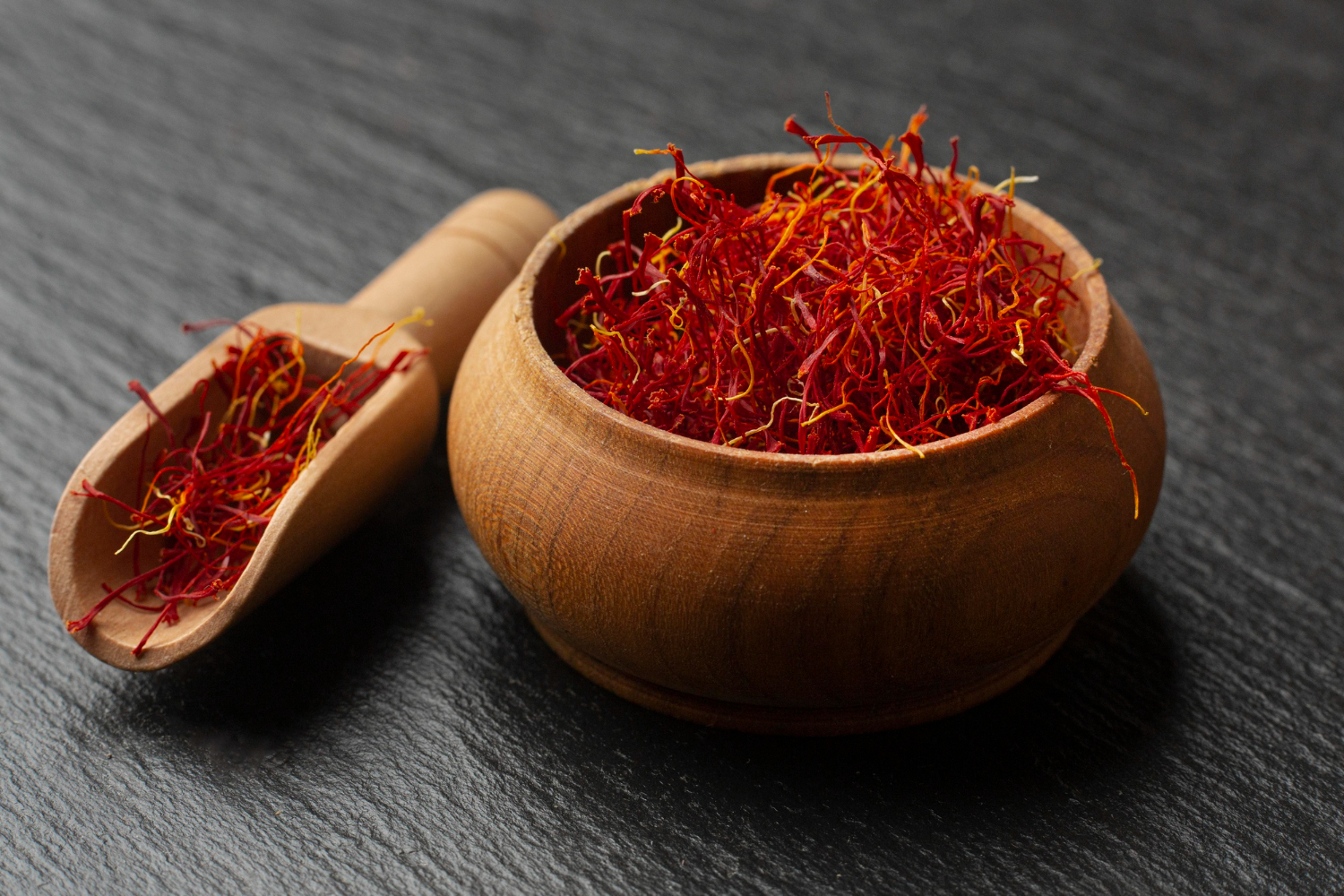Introduction to saffron and its cultural significance
Saffron, also known as the “golden spice,” has been a prized ingredient in various cultures for centuries. With its vibrant color, unique flavor, and medicinal properties, saffron has found its way into traditional cuisines, religious rituals, and even beauty treatments. In many cultures, saffron is believed to possess mystical qualities and is often associated with fertility, good luck, and enhancing beauty. One common myth surrounding saffron is its ability to influence the complexion of a baby during pregnancy. In this article, we will explore the truth behind this belief and shed light on the potential risks and benefits of consuming saffron during pregnancy.
Common myths and beliefs about saffron and pregnancy
Throughout history, saffron has been surrounded by various myths and beliefs, especially when it comes to its impact on pregnancy. One prevalent myth is that consuming saffron during pregnancy can lead to a fair-complexioned baby. This belief is deeply ingrained in many cultures, where fair baby skin is often associated with beauty and perceived advantages in life. However, it is important to note that the color of a baby’s skin is determined by the genetic makeup inherited from both parents, not by the consumption of saffron or any other food during pregnancy.
Another common misconception is that saffron can induce labor or cause a miscarriage. While saffron has been used in traditional medicine to stimulate contractions and regulate menstruation, there is insufficient scientific evidence to support these claims. It is always advisable for pregnant women to consult their healthcare provider before incorporating any new ingredient into their diet, including saffron.
Debunking the myth of saffron’s effect on a baby’s complexion
Contrary to popular belief, consuming saffron during pregnancy does not guarantee a fair-complexioned baby. The color of a baby’s skin is determined by the amount of melanin present in their skin cells, which is determined by their genetic makeup. Melanin is the pigment responsible for the color of our skin, hair, and eyes. The genes responsible for melanin production are inherited from both parents and are not influenced by the consumption of saffron or any other food during pregnancy.
It is essential to celebrate and embrace the natural beauty of every baby, regardless of their skin color. Instead of focusing on external appearances, it is crucial to prioritize the health and well-being of both the mother and the baby during pregnancy.
The potential risks and side effects of consuming saffron during pregnancy
While saffron is generally safe for consumption in moderate amounts, it is important to be aware of potential risks and side effects, especially during pregnancy. Some studies suggest that consuming large amounts of saffron during pregnancy may stimulate contractions and potentially lead to preterm labor or miscarriage. However, these findings are inconclusive, and more research is needed to establish a definitive link between saffron and adverse pregnancy outcomes.
Additionally, saffron is a potent spice and may cause allergic reactions in some individuals. If you have a known allergy to saffron or any other spice, it is best to avoid its consumption during pregnancy. Furthermore, saffron is a high-value spice and is often prone to adulteration. To ensure the safety and quality of the saffron you consume, it is advisable to purchase it from reputable sources.
Alternative ways to enhance skin complexion during pregnancy
While saffron may not have a direct impact on a baby’s complexion, there are alternative ways to enhance skin health and radiance during pregnancy. A balanced and nutritious diet rich in fruits, vegetables, whole grains, and lean proteins can provide essential vitamins and minerals that promote healthy skin. Staying hydrated by drinking an adequate amount of water is also crucial for maintaining skin elasticity and a natural glow.
Incorporating natural skincare practices, such as gentle cleansing, moisturizing, and wearing sunscreen, can help protect the skin from environmental damage and maintain its overall health. It is important to choose baby skincare products that are specifically formulated for pregnant women to ensure their safety and effectiveness.
Conclusion: Embracing natural beauty and debunking myths
In conclusion, the belief that consuming saffron during pregnancy can guarantee a fair-complexioned baby is nothing more than a myth. The color of a baby’s skin is determined by their genetic makeup and is not influenced by the consumption of saffron or any other food during pregnancy. It is crucial to embrace and celebrate the natural beauty of every baby, regardless of their skin color.
While saffron is generally safe for consumption in moderation, pregnant women should be aware of potential risks and side effects. It is always advisable to consult a healthcare provider before incorporating any new ingredient into the diet during pregnancy.
Instead of focusing on external appearances, let us prioritize the health and well-being of both the mother and the baby during pregnancy. By debunking myths and embracing natural beauty, we can create a more inclusive and accepting society that celebrates the uniqueness of every individual.
